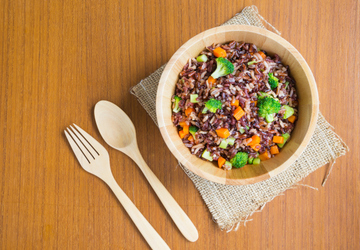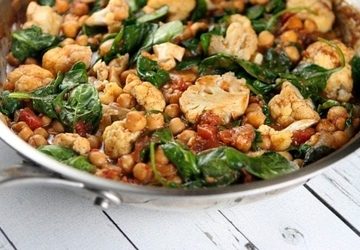7 Benefits of Cooking with Whole Foods
Do you want more energy, better health, and delicious home cooked meals? Cooking with unprocessed, nutritious whole foods can help you achieve all three goals.
In this article, we'll explore the top 7 benefits of whole foods in your kitchen. These nutrient dense foods provide maximum nutritional value since they are untouched by chemical additives.
Now, let's go into detail the many reasons why cooking with whole foods can transform your health and love of food.
7 Advantages of Whole Foods Cooking
Fatty fish, beans, sweet potatoes and vitamin-D, leaving us less stressed. We’ll discuss a comforting chickpea, lemon yogurt over greens to give your mood a gentle, lasting lift tonight?
How about trying one new serotonin boosting whole food recipe this week to ease anxiety and depression gently?
1. Boosts Energy Levels

You know that afternoon slump when your energy tanks? Cooking whole foods like quinoa, brown rice and lean protein helps regulate blood sugar levels, avoiding the spike and crash from eating refined carbs and sugars.
Why not try refined carbs and replace them with energizing whole grains like brown rice to maintain your energy levels instead of having them spike and crash?
2. Supports a Healthy Weight
Processed foods like chips, cookies and soda are often packed with empty calories yet lack nutrients. In contrast, whole foods are loaded with fiber, protein and healthy fats that keep you feeling full.
Why not do a round of whole food meal prep this Sunday focused on proteins, you can fill up on nutrient foods that help you maintain a healthy weight this week?
3. Reduces Inflammation
Chronic inflammation causes numerous health issues like arthritis, fatigue, skin conditions and disease. Whole foods contain antioxidants and omega-3 fatty acids that fight this pervasive inflammation.
Could enjoying salmon loaded with inflammation fighting omega-3s a few times this week help reduce your joint pain and fatigue?
4. Boosts Overall Health
The vitamins, minerals, antioxidants and fiber found abundantly in whole foods are essential for optimal health. People who eat diets rich in whole foods have lower rates of heart disease, diabetes, cancer and other chronic illnesses.
Why not make it a goal to incorporate more fresh, whole fruits and veggies overflowing with essential vitamins and minerals into your meals this week?
5. Supports Brain Health
The brain needs plenty of vitamins, minerals and healthy fats to perform at its best. Fish, nuts, seeds, green leafy veggies and berries nourish the brain while helping prevent dementia, disease and memory loss.
Will you start your day tomorrow with a Greek yogurt topped with walnuts, flaxseed and berries to nourish your brain?
6. Improves Mood

What you put in your body impacts how you feel, including your mood. Whole foods like fatty fish, bananas, yogurt and chickpeas help boost serotonin production. A positive mood, less anxiety and lower rates of depression.
Will choosing to make a comforting chickpea coconut, relaxing salmon over greens or brightening lemon yogurt bowl give your mood a wholesome boost tonight?
7. It's Delicious!
Here’s the best part about cooking whole foods: it tastes amazing! Vibrant, fresh whole foods are bursting with flavor and goodness. Once you get the hang of some prepared recipes, you may find you enjoy healthy home cooking.
With so much flavor and nutrition, what is one new whole food recipe you can explore this week for healthy, satisfying eating?
Conclusion
As you can see, embracing whole foods in your kitchen offers tremendous benefits for energy, health, weight management, inflammation reduction, overall wellbeing, brain health, mood and taste.
Are you ready to discover your health with scrumptious, nutritious whole food recipes? Let's get cooking!
FAQs
Q. What are some easy ways to start cooking more whole foods?
Ans. Start small by adding one new whole food each week, like cooking quinoa, roasting Brussels sprouts or preparing a veggie frittata. Stock up on frozen fruits/veggies for easy additions.
Q. Do you need to give up all processed foods to reap benefits?
Ans. You should aim to get at least 80% of your diet from nutrient dense whole foods. Allowing yourself occasional treats just doesn't make them the foundation of your regular diet.
Q. Is whole food cooking more expensive?
Ans. Sticking to whole foods like fruits, veggies, eggs and beans is typically cheaper than buying heavily processed convenience foods. Buy in bulk when possible, choose lower cost produce in season, and stretch meat with proteins.


